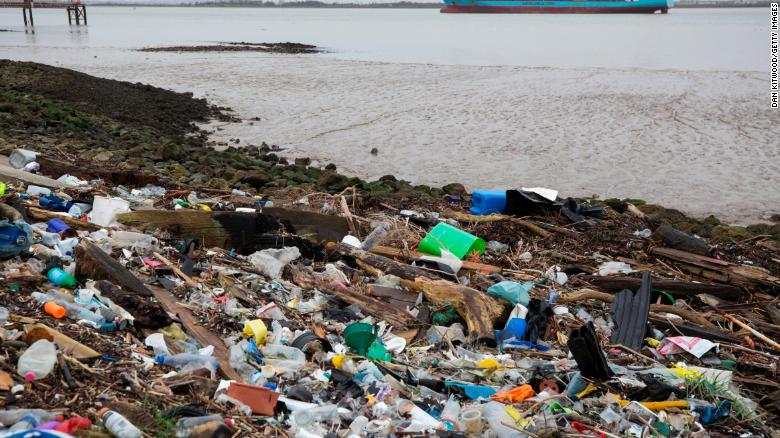[vc_row][vc_column][vc_cta h2=”Michelle Stocker will lead next Science on Tap event on Nov. 1st!”]
Michelle Stocker, Assistant Professor Geosciences and GCC Faculty affiliate, along with graduate students from her lab, will lead the next Science on Tap event to be held on Thursday, Nov. 1; 5:30 – 7:00 pm at Rising Silo Brewery at 2351 Glade Road in Blacksburg. The topic will be fossil-themed, more details forthcoming on the Science on Tap Facebook page.
[/vc_cta][vc_column_text]
BY ROBBY KORTH
BLACKSBURG — A few beers, some trivia and a short science talk are brewing a strong connection between local researchers and the general public in the New River Valley.
Science on Tap is a monthly event that brings research, mostly from Virginia Tech, to the public in an effort to discuss cutting-edge research over trendy ales at Rising Silo Brewery for most of the year, and Rivermill Bar and Grill during the colder winter months. The event is put on by the Center for Communicating Science at Virginia Tech.
In the past, it’s featured a wide variety of speakers ranging from the Flint Water Study researchers, to a head gear lab test researcher to the local author of a book about animal farts.
The September event, Thursday, featured the work of Tech professor and animal behaviorist Erica Feuerbacher. She and her dog Iorek demonstrated some of the ways people can train their pooches for an audience of about 60 people.
Learning about science in an accessible way is the top goal of the event, said Carrie Kroehler, associate director of Virginia Tech’s Center for Communicating Science. Another goal is to make sure people are getting reliable information.
According to a National Science Board Survey, 55 percent of people who are learning about science glean their scientific study through surfing the web. That information isn’t always reliable, Kroehler said.
At Science on Tap, scientists who have reliable scientific information can dispense it to actual people encouraging actual discourse, Kroehler said. “This provides an opportunity to do real communicating with real people,” Kroehler said.
But just because the general public is welcome, that doesn’t mean it isn’t good for the science-minded in the Virginia Tech community, too. The event regularly attracts a core group of graduate students and young researchers who get together for science-based community building, Kroehler said.
The event was kickstarted by Katie Burke, a digital features editor for American Scientist magazine and advisory board member for Tech’s science communications center.
Burke moved to the New River Valley in 2015 before starting the event in the spring of 2017. She had attended a similar type of science on tap event in the Raleigh, North Carolina, area where she lived previously.
“I was just looking for something to tap into,” Burke said. “I was surprised there wasn’t anything like this.”
Finding that there wasn’t a science on tap event in the area, she said she got in touch with Kroehler and Patty Raun, director of the Center for Communicating Science at Virginia Tech. The pair was instantly supportive of the idea, Burke said.
The first Science on Tap was in April 2017 and featured the research of fish and wildlife conservation professor Bill Hopkins, who studies the amphibious eastern hellbender.
The event has grown over time, Burke said. They’ve had more than 100 at some of the talks, though an average crowd is closer to 40 or 50.
“We’ve always had huge turnouts,” Burke said, “and always an engaged audience.”
That’s often because of speakers picked and vetted by Burke.
She said she’ll check to make sure that researchers have given similar talks in the past and any graduate students who participate must complete the Center for Communicating Science’s curriculum on presentation.
The presenting scientists are given a pint glass styled like a beaker, which Feuerbacher received full of beer Thursday evening.
For those in attendance, the event delivers important exposure to scientific research. Allison Hutchison, a graduate student in Tech’s English department, attended the event with her husband and dog Boris, who was given some lessons on canine behavior.
She brought students from a science writing course she taught last semester to a Science on Tap event. For the general public, combining beer with learning will lead to good times, she said.“
This is an event people need to open their Thursdays up to,” Hutchison said. “Science can be fun.”
October’s event is not yet scheduled because the fourth Thursday features a nationally televised football game between Virginia Tech and Georgia Tech in Blacksburg.
To learn more about the October Science on Tap event, stay tuned to the group’s Facebook page, Science on Tap – New River Valley.
[/vc_column_text][/vc_column][/vc_row][vc_row][vc_column][vc_separator][/vc_column][/vc_row][vc_row][vc_column][/vc_column][/vc_row][vc_row][vc_column][/vc_column][/vc_row]



